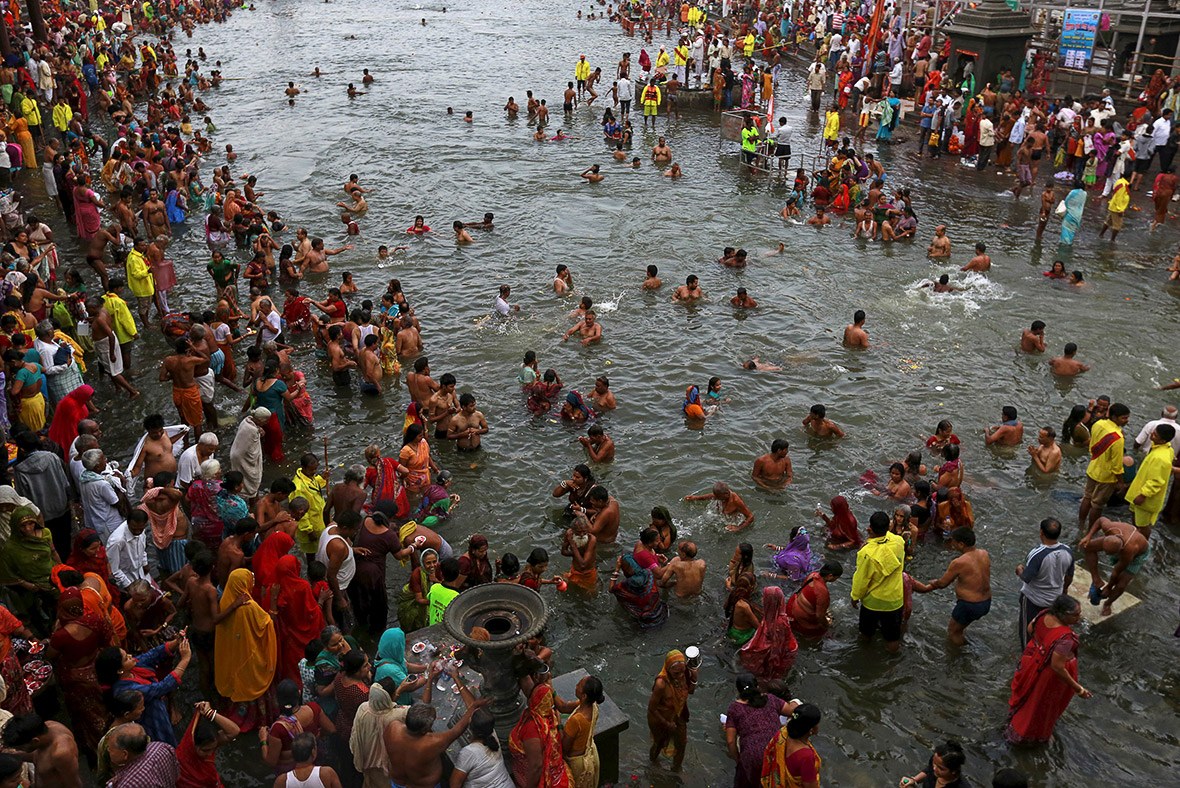Kumbh Mela: Thousands bathe in Godavari river at start of ancient Hindu festival in Nashik [Photos]
Thousands of devout Hindus took a dip in the Godavari river to cleanse themselves of their sins during the first major snan (bathing session) of the Kumbh Mela (Pitcher Festival) in Nashik, western India.




The festival has its roots in a Hindu tradition that says the Lord Vishnu battled demons for a golden pot containing the nectar of immortality. During their 12-day fight for possession, four drops of this elixir fell to earth, in the cities of Allahabad, Haridwar, Ujjain and Nasik. Every three years a Kumbh Mela is held at one of these spots. Bathing in the river at these places during this period is considered to cleanse all sins.
More than 2,000 years old, the festival is a meeting point for Hindu 'sadhu' ascetics, some of whom live in forests or Himalayan caves. Some naked and covered in ash, others wrapped in saffron or leopard-print cloth and smoking cannabis pipes, the holy men hold court by fire pits in sprawling camps decorated with coloured neon lights, where they are visited by pilgrims who offer alms and receive blessings.





The festival grows in size each time it is held. This partly reflects India's expanding population, but is also seen as evidence that spiritual life is thriving alongside the new-found affluence of a growing middle class.
© Copyright IBTimes 2025. All rights reserved.






















